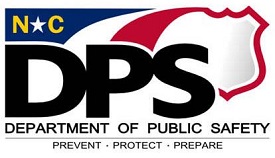
Special to Iredell Free News
RALEIGH — The N.C. Department of Public Safety has reached a Settlement Agreement with a group of plaintiffs who filed a lawsuit seeking the release of nonviolent offenders who are being exposed to COVID-19 in state prisons. The settlement calls for an immediate 180-day stay of the legal matter.
The 180 days will begin after the trial court grants the request to stay the case. Specific details for enacting certain portions of the agreement will be worked out in the days and weeks to come.
The ACLU of North Carolina, Disability Rights North Carolina, Emancipate NC, Forward Justice, and the National Juvenile Justice Network filed the lawsuit to force the governor and other public officials work to stop the deadly spread of COVID-19 in state correctional facilities.
As part of the Settlement Agreement, the Division of Adult Correction and Juvenile Justice will continue taking a variety of actions aimed at keeping staff, offenders in custody and others served as safe as possible from the impacts of the coronavirus. Among other actions, DPS will increase the pace at which offenders are being transitioned into the community to accomplish an early re-entry for 3,500 people within six months of the stay.
For the past year, in addition to expedited releases, DPS has been transitioning a select group of people who have non-violent crimes through the Extended Limits of Confinement (ELC) initiative to complete their sentence in the community in order to reduce the prison population. Slightly more than 1,000 offenders were transitioned to ELC.
DPS will continue to complete the following specific actions to mitigate the effects of COVID-19:
♦ Reduce the onsite prison population through several “early re-entry” actions. Within six months of entry of the stay, DPS in coordination with the Post-Release Supervision and Parole Commission will transition 3,500 offenders out of state facilities by utilizing a combination of 1) awarding discretionary sentence credits in order to move individuals to their mandatory minimum sentence sooner; 2) transferring select individuals to serve their remaining sentence time under the supervision of community corrections officers through Extended Limits of Confinement (ELC); and 3) reinstating or restoring individuals to post-release supervision or granting early release to those participating in the Mutual Agreement Parole Program.
♦ Provide Vaccine Education to staff and the incarcerated population.
♦ Provide Vaccine Incentives for the incarcerated population.
♦ Conduct Cohort Reviews of the size and configuration of cohorts of offenders and continue to isolate confirmed COVID-19 positive persons.
♦ Provide masks, sanitation and hygiene products to staff and incarcerated persons.
♦ Follow current pandemic transfer protocols for those offenders who have not been fully vaccinated.
♦ Follow current pandemic testing protocols for staff and offenders who have not been fully vaccinated.
♦ Monitor facilities for compliance with COVID-19 mitigation efforts.
♦ Provide family notifications of serious illness, injury or death of hospitalized persons.
♦ Implement an anonymous complaint system for incarcerated persons to report issues related to COVID-19 mitigation practices.
Extended Limits of Confinement Initiative Criteria
The Extended Limits of Confinement (ELC) is only one tool DPS will utilize for early re-entry efforts. To be considered for ELC, offenders must not be serving a sentence for a crime against a person during the current incarceration and must meet at least one of these criteria:
♦ Be pregnant;
♦ Already be on home leave with a 2021 projected release date;
♦ Already be on work release with a 2021 release date; or
♦ Have a 2021 projected release date
Plaintiffs agreed to execute a release of claims against the defendants at the end of the 180 days and will dismiss the superior court action with prejudice.
“As indicated in the agreement, the department will move forward with the actions outlined over the next 180 days, most of which it is already carrying out daily,” said Timothy Moose, chief deputy Secretary for the Division of Adult Correction and Juvenile Justice at DPS. “We will continue to prioritize the health and safety of our staff and those in our custody as we navigate the perils of COVID-19.”




While I understand Covid has created problems with a lot of things, these claims are ridiculous reasons to cut offenders’ sentences short and release. Just another message to say “do the crime because our system can’t make you do the time.”
What are the consequences of committing these crimes that typically one must pay time for? With no consequences, we can’t expect for for these crime to to lessen. Perhaps the people committing these crimes should make better decisions not to get themselves in the the prisons to start with.
How about one criteria be considered and added to the list: Early release or no time should only be for first- time offenders. There should be NO consideration or bail out for repeat offenders that have proven time and time again that this wasn’t a “one time bad decision” rather it is way of life, and they don’t need to rewarded or the consequences forgiven.
Just my thoughts, and my apologies for the men and women in law enforcement and the judicial system for having to work in this environment when offenders are calling the shots.
You are right, Jim. Can’t stress this enough.
I’m with him!
I’m with Jim! Well spoken!
We need this guy as major ??